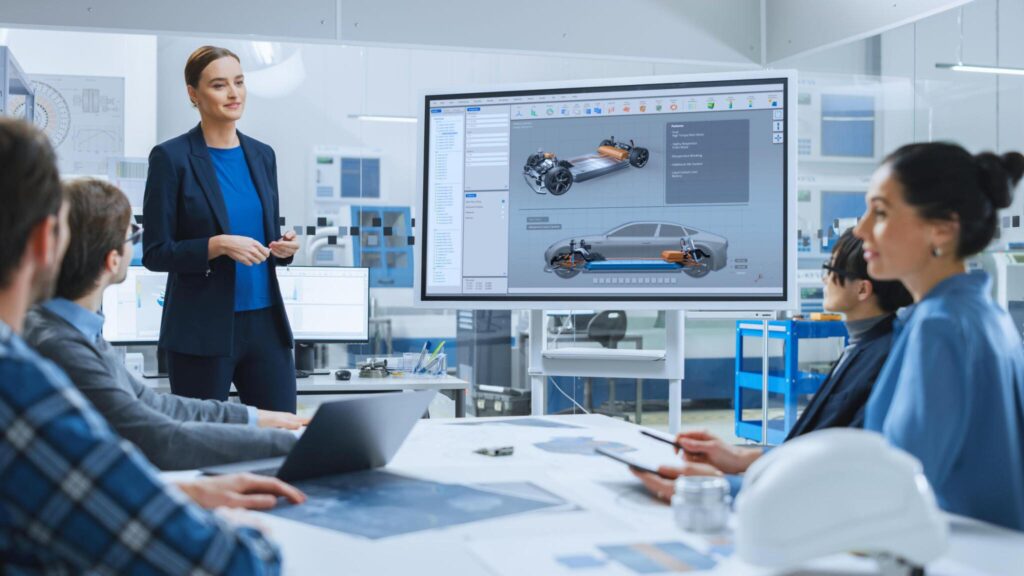In the realm of art and music, human creativity has always been the driving force behind groundbreaking masterpieces.
However, with the advancement of artificial intelligence (AI), we are now witnessing a fascinating intersection of technology and artistry. AI is revolutionizing the creative process by generating art and music that push the boundaries of imagination.
In this article, we will explore the remarkable capabilities of AI-generated art and music, and how they are redefining the landscape of creativity.
The Emergence of AI in the Creative Sphere
The integration of AI into the creative sphere marks a significant turning point in the history of art and music. Artists, musicians, and technologists are exploring the possibilities of AI as a creative tool, pushing the boundaries of traditional artistic expression.
Understanding AI-Generated Art
AI-generated art involves the use of algorithms and machine learning techniques to create visual artworks. AI systems can analyze vast amounts of data, learn artistic styles, and generate original pieces that mimic the aesthetics of renowned artists or explore entirely new and unique styles.
The Role of AI in Music Composition
AI is also transforming the process of music composition. By analyzing large datasets of musical compositions, AI algorithms can learn patterns, harmonies, and structures to generate original pieces of music. This opens up new avenues for musicians and composers to explore innovative sounds and compositions.
Breaking the Boundaries of Imagination with AI
AI-generated art and music have the power to break free from the constraints of human imagination. AI algorithms can combine elements from different artistic styles, experiment with unconventional techniques, and create compositions that challenge traditional artistic norms. This enables artists and musicians to delve into uncharted territories of creativity.
Collaborative Efforts: Humans and AI in the Creative Process
The collaboration between humans and AI is an exciting aspect of AI-generated art and music. Artists and musicians can use AI as a tool to enhance their creative process, leveraging its capabilities to generate ideas, explore new directions, and overcome creative blocks. The fusion of human ingenuity with AI’s computational power leads to groundbreaking artistic endeavors.
Embracing AI as a Tool for Inspiration
AI-generated art and music are not meant to replace human creativity; rather, they serve as sources of inspiration and exploration. Artists and musicians can draw inspiration from AI-generated works, incorporating them into their own artistic visions and pushing the boundaries of their creativity even further.
The Impact of AI-Generated Art and Music on Society
The emergence of AI-generated art and music has a profound impact on society. It challenges our traditional notions of creativity, raises questions about the nature of authorship, and sparks conversations about the role of technology in shaping artistic expression. Additionally, it provides new avenues for engagement and enjoyment of art and music for audiences worldwide.
Ethical Considerations and Controversies Surrounding AI Creativity
The rise of AI creativity also raises ethical considerations and controversies. Questions regarding intellectual property, authenticity, and the influence of algorithms on artistic choices come to the forefront. It is essential to address these concerns and establish ethical guidelines to navigate the evolving landscape of AI-generated art and music.
Exploring the Future of AI in the Creative Industries
The future of AI in the creative industries is filled with possibilities. As AI algorithms continue to evolve, we can expect even more sophisticated and captivating art and music. AI may inspire entirely new artistic movements, shape multimedia experiences, and democratize creativity by enabling access to artistic tools for all.
Conclusion
The emergence of AI-generated art and music is revolutionizing the creative landscape. By leveraging the power of algorithms and machine learning, artists and musicians can push the boundaries of imagination, collaborate with AI, and redefine traditional notions of creativity. As we navigate the future, it is crucial to embrace AI as a tool for inspiration while addressing the ethical considerations that accompany this groundbreaking shift.
FAQs
- Can AI-generated art and music be considered true creativity?
AI-generated art and music are products of algorithms and machine learning, but they can still be considered forms of creativity. They challenge traditional notions of creativity and offer new possibilities for artistic expression. - How can artists and musicians collaborate with AI in the creative process?
Artists and musicians can use AI as a tool for inspiration, drawing ideas from AI-generated works to enhance their own creative process. AI can provide fresh perspectives, generate ideas, and help overcome creative blocks. - What impact does AI-generated art and music have on society?
AI-generated art and music challenge traditional notions of creativity, raise questions about authorship and the role of technology in artistic expression, and provide new avenues for engagement and enjoyment of art and music. - Are there any ethical concerns surrounding AI creativity?
Yes, ethical concerns such as intellectual property, authenticity, and the influence of algorithms on artistic choices arise with AI creativity. It is important to address these concerns and establish ethical guidelines to navigate the evolving landscape. - What does the future hold for AI in the creative industries?
The future of AI in the creative industries is promising. As AI algorithms continue to evolve, we can expect even more sophisticated and captivating art and music. AI may inspire new artistic movements, shape multimedia experiences, and democratize creativity for all.



